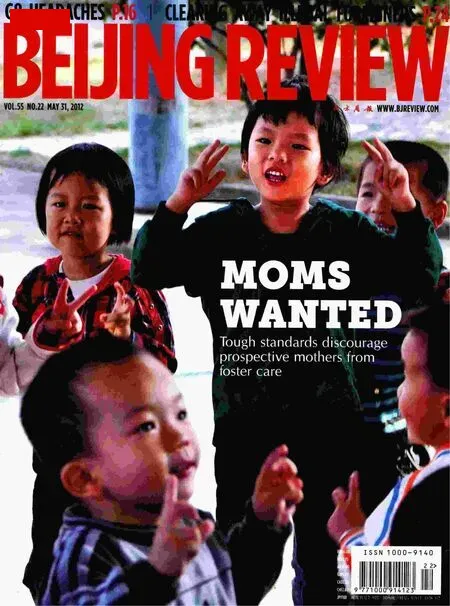The Plight of Adoptive Mothers
The Plight of Adoptive Mothers
In SOS Children’s Village, a charity specializing in foster care, the “mother”plays a crucial role. Every village is composed of many families, with seven or eight children to a home. Hermann Gmeiner, an Austrian philanthropist, founded the organization in 1949 to give children a chance to be raised in families, so that the orphans could enjoy a mother’s love and family warmth and thus grow up healthily and happily.
Gmeiner made a list of requirements for each prospective mother: they must be unmarried, divorced, or widows. They can have no children of their own, and divorced women cannot have custody of their kids. To be an SOS mother is to make a commitment to being single or having no child,and agree to remain in the state for life.
After the People’s Republic of China was founded in 1949, the Chinese Government decided that the state should play a major role in taking care of the country’s orphans. A lot of babies were abandoned at that time and state-owned welfare houses across the country were responsible for raising children.
In the past decade, however, the concept of foster care has spread and become more popular in China. The fi rst SOS Children’s Village in the country was set up in 1984, and since then the number of such villages has increased.
Each SOS Children’s Village in China is composed of 12 to 18 families, with a mother taking care of the children as they grow to become siblings. Each village has a head (male), who plays the role of father. Every village has kindergartens, youth’s fl ats and fl ats for retired mothers.
According to statistics released by the China Association for SOS Children’s Village at the end of 2011, China villages had fostered about 2,300 orphans. Half of them have already left the village to enter society; more than 300 children are college graduates; and one third of them had graduated from technical schools.They have gone on to be civil servants, businessmen and servicemen, proving to make a positive contribution to society in different ways.
However, running an adoption community is not always a smooth operation. Children’s employment and housing proves to be a bottleneck for the village. Recently, some villages have offered many job openings for adoptive mothers, but few applied. SOS villages are in desperate need of mothers, or some children might again face the heartbreak of losing a mother’s love. Many potential applicants are deterred by the strict relationship standards, low pay and a dif fi cult life after retiring.
The SOS children’s villages in China are in need of not only huge donations from the whole society, but also the arrival of a large number of devoted, caring,sel fl ess people, who may sustain this wonderful cause forever.

